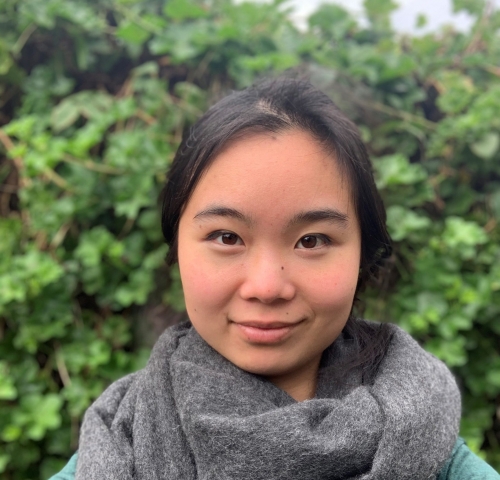
Christine Li
University of Melbourne
I am in the first year of my PhD at the Centre of Excellence for Biosecurity Risk Analysis at the University of Melbourne. Prior to this I worked for 5 years in public policy consulting and academic research.
Give me a quick overview of the type of mathematics you are studying, and/or the aims of your research and its potential applications/outcomes.
I study crop diversification strategies and their potential for adaptation to climate change. I’m aiming to compare the resource use efficiency, yield productivity and climate adaptation potential of more biodiverse and less biodiverse croplands. This will involve statistical modelling and meta-analysis and creating an approach to map landscape diversity on agroecosystems.
How did you get into the mathematical sciences? Was there someone or something that inspired you to this field?
I studied economics, econometrics and statistics during my undergraduate and honours degree. I enjoyed it so much I took as many applied courses as I could – learning microeconometric modelling, time series forecasting, predictive modelling with machine learning models. This introduced me to the world of probability and uncertainty and paved the way for later learning methods to make inferences with real world data.
Winter School is designed to give students a deeper understanding of their area of research and expose them to others working in different fields/industries. Tell me about your Winter School experience. What was the most valuable part of the program for you?
I found multiple parts of the program valuable – the lectures in fisheries modelling, evolutionary game theory and Sequential Monte Carlo techniques, and meeting others working on similar applied problems involving modelling landscape and biological systems. It was also very useful to practice explaining my research topic and approach to different people.
What was your main take away/s from AMSI Winter School? Something you learnt? A connection you made? Do you have new ideas for your work/research or see it in a new light?
Really hard to choose – staying at the Women’s College with a few others meant I made some friends and it was great to discuss and debrief after every day and explore Brisbane together. I also learnt many different techniques that might come in handy in my research from the school and from others’ work – I’m now encouraged to try Bayesian inference methods and am curious about using Value of Information analysis.
You received a grant to attend AMSI Winter School. How important was this in terms of your ability to attend, fully participate in the program and meet others studying in similar fields?
Attending in person was extremely important for me. The schedule encouraged attendees to mingle and collaborate during and between sessions, and I really appreciated being able to participate fully and discuss the interesting problems that everyone is working on. It was also very helpful to progress through the lectures being able to share and seek help on some of the hands-on programming aspects of the lectures.
What advice would you give to someone who is considering applying for Winter School? How would you describe the conference to them?
I’d definitely recommend to go for it if they have an interest in the theme – which for us was modelling the changing biosphere, i.e. using mathematics and statistics to solve problems in ecology, biology and conservation. The Winter School lecturers were fantastic at bringing everyone along, even those who didn’t necessarily have in depth background knowledge of the area.
Where do you want the mathematical sciences to take you? Where do you see yourself in five, ten years time?
I love researching applied problems in food production and sustainability, so hopefully I’ll be working in the field of agricultural research.

